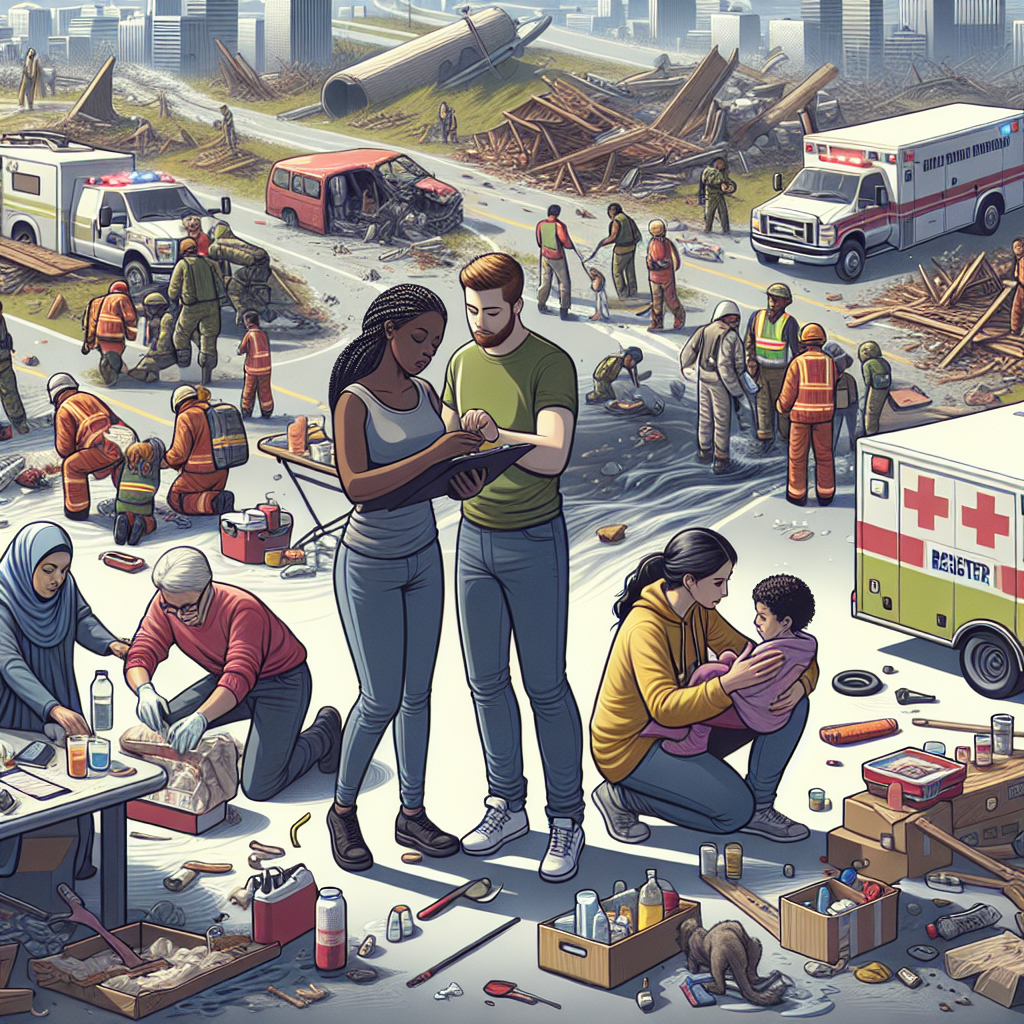The Role of Volunteers in Crisis Management and Disaster Relief
In the wake of natural disasters or humanitarian crises, one of the most significant resources that communities can rely on is the dedication and enthusiasm of volunteers. These unsung heroes play a vital role in crisis management and disaster relief efforts, providing essential services and support where it’s needed most. But what exactly do these valiant individuals do, and how can you get involved? Let’s dive into the remarkable world of volunteerism in times of need.
Why Volunteers are Essential in Crisis Situations
When disaster strikes, it’s often difficult for local governments and organizations to mobilize all necessary resources quickly. This is where volunteers step in to bridge the gap, offering their time, skills, and compassion to help those affected. Volunteers bring diversity, adaptability, and innovation to crisis management, breathing life into relief operations.
- Volunteers offer quick response times by assisting with immediate needs such as search and rescue, first aid, and distributing essential supplies.
- They play a critical role in long-term recovery efforts, including rebuilding homes, providing education, and supporting mental health initiatives.
- Volunteers contribute a range of skills, from medical expertise to logistical support, helping to meet diverse needs in crisis environments.
- Their involvement helps stretch resources, allowing funds to be allocated more effectively to support the affected populations.
Different Ways Volunteers Contribute
Volunteer roles in disaster relief and crisis management can take many forms, catering to a variety of interests and skill sets. Whether you are a medical professional or a social media guru, there’s always a place for you in volunteer efforts.
- Emergency Responders: Volunteers trained in emergency response can perform critical tasks such as search and rescue, medical assistance, and transporting the injured.
- Logistical Support: Planning, organizing, and distributing resources efficiently is key in crisis situations, and volunteers often support these efforts behind the scenes.
- Emotional and Psychological Support: Helping individuals cope with trauma and loss through counseling and support services is another critical volunteer role.
- Reconstruction and Rehabilitation: Volunteers assist in rebuilding efforts, from physical structures to community dynamics, helping restore a sense of normalcy.
- Advocacy and Awareness: Raising awareness on platforms like Popular Politics Channels on Telegram can help mobilize resources and inform broader audiences about ongoing needs and issues.
The Impact of Volunteers on Disaster Relief
The value that volunteers bring to disaster relief efforts cannot be underestimated. Their contributions lead to faster recovery times and more resilient communities. For instance, in the aftermath of Hurricane Katrina, volunteers came from all over the country to aid in relief efforts, ultimately making a significant impact on recovery efforts through their dedication.
Similarly, during global pandemics, volunteers have provided critical support by manning helplines, delivering supplies, and assisting with vaccination drives. Their efforts help not only in saving lives but also in uplifting the morale of communities, showing that humanity shines brightest in times of adversity.
How to Get Involved in Volunteer Work
Feeling inspired to make a difference? There are numerous ways to become an active participant in crisis management and disaster relief efforts. Start by researching organizations both locally and globally that align with your interests and capabilities. Many agencies offer training to equip you with essential skills needed in crisis situations.
Consider joining community preparedness programs or becoming a part of an emergency volunteer service group. Engaging with platforms that provide the Latest Politics Updates on Telegram can also keep you informed about ongoing needs and opportunities to assist in political or humanitarian crises worldwide.
In conclusion, volunteers are a cornerstone of effective crisis management and disaster relief efforts. Their work not only helps communities recover from immediate devastation but also fosters resilience and unity. By volunteering, you can contribute to meaningful change and become part of a global network dedicated to spreading hope and help when it’s needed the most. Remember, in the words of the famous activist Margaret Mead, “Never doubt that a small group of thoughtful, committed citizens can change the world; indeed, it’s the only thing that ever has.”

